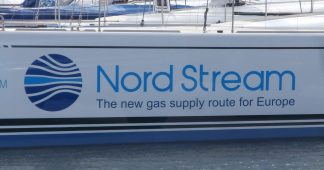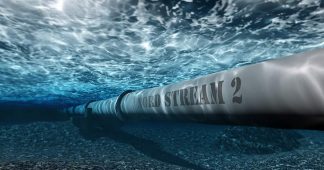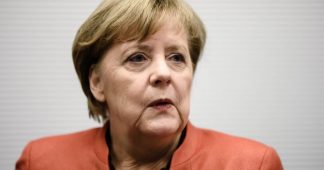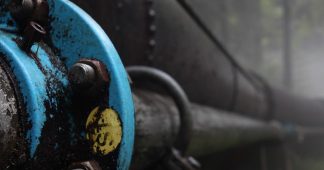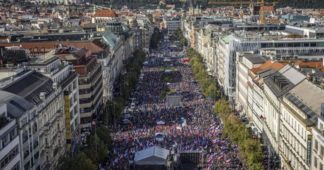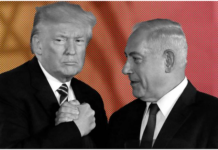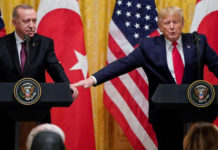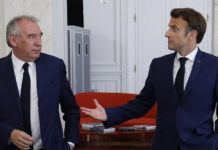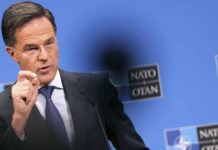By Nick Brauns,
Published in German on Junge Wel
Nov 3, 2022
Brief report from the German news website Junge Welt on the large demonstrations against sanctions on Russia that took place in the German town of Lubmin and city of Plauen on October 30. They were organized by right-wing figures and local groups.
________________________
Russian flags were waved in the crowd. Signs and banners read, ‘We are the people’ [a slogan often used by populist/right-wing and Islamophobic circles] and ‘Red-Yellow-Green to the Eastern Front’. When three Ukrainian women stood in front of the stage with signs calling Russia a ‘terrorist state’, they were pushed away to loud cries of protest against their message.
Many of the rally participants were clearly from the middle class, , reported the information portal Endstation Rechts, which is close to the governing SPD party. There were also a few dozen neo-Nazis and Alternative für Deutschland (AfD) party members, as well as some supporters of the AfD’s far-right ‘Flügel’ faction who have already been thrown out of the party. For example, Andreas Kalbitz, a member of the Brandenburg state parliament who was expelled from the AfD, was one of the speakers at the rally.
The lifting of sanctions against Russia was also a demand in Plauen on the same date, along with a demand for the resignation of the federal government. This was the third time that a ‘neither left nor right’ forum for democracy and freedom had called for a ‘people’s assembly’ followed by a demonstration in this town of 63,000 inhabitants in the south west of Saxony. According to the district office, around 4,200 demonstrators came together, compared to 5,500 two weeks ago.
The Bild newspaper quoted the spokesman of the forum, David Thiele: “Our main goals are peace in Europe, and democratic change to a more direct democracy, with the Basic Law as the foundation and renewal of the idea of solidarity,”. For Thiele and his fellow campaigners, the majority of members of the Bundestag are “traitors to the people”.
For the mayor of Plauen, Steffen Zenner, the forum does not reflect “basic democratic understanding”, reported radio station Mitteldeutscher Rundfunk. “Alcohol, dogs, anything unconstitutional” were not permitted at its protest, according to the demonstration call, which was otherwise decorated with a peace flag and the pacifist slogan ‘Create peace without weapons’. Supporters of the fascist-separatist Free Saxony mingled with the demonstrators, waving Saxon and German flags in particular.
Recent protests such as those in Lubmin and Plauen are “bourgeois” by virtue of the class status of the majority of participants, but are often initiated by people from the right-wing or fascist spectrum. This is a symptom of the absence or weakness of the left. This also applies to many of the numerous weekly Monday demonstrations against the austerity policies of the traffic light government that are taking place mainly in the eastern federal states and drawing tens of thousands of participants. There have been as many demonstrators in many a small East German town as there were in the nationwide protests initiated by the Left Party the weekend before last.
Meanwhile, there are attempts to occupy the “hot autumn” from the left. Local left alliances are trying to mobilize here and there. A list of left-wing social protests, such by the ‘Not on our backs’ alliance, which was formed against the background of the corona pandemic in spring 2020, lists events on more than 20 dates during the next few weeks.
An ‘enough is enough!’ campaign initiated by Jacobin magazine advocates, among other things, a cap on energy prices, wage increases, taxation of those who profited from the crisis, and an extension of the nine-euro rail ticket. However, the economic war against Russia as the main cause of the economic crisis is not addressed in many of these actions.
Notes:
[1] The ‘traffic light’ coalition government in Germany refers to the colours of the three leading parties in the coalition–the ‘red’ Social Democrats, ‘yellow’ liberal Free Democrats, and the Green Party.]
We remind our readers that publication of articles on our site does not mean that we agree with what is written. Our policy is to publish anything which we consider of interest, so as to assist our readers in forming their opinions. Sometimes we even publish articles with which we totally disagree, since we believe it is important for our readers to be informed on as wide a spectrum of views as possible.
